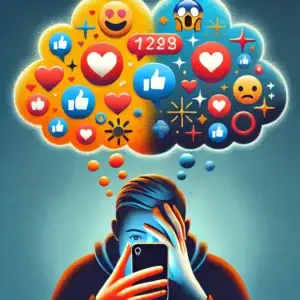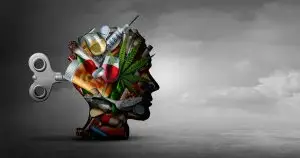
Identifying Eating Disorders and Taking Action
Eating disorders are often brushed under the rug or misunderstood. They affect millions of people, impacting their bodies and minds in ways many of us might not even notice at first. Whether it’s skipping meals, obsessing over calories, or extreme exercise, the warning signs aren’t always obvious, especially when it’s happening to someone close to you—or even yourself. But catching the signs early can make a huge difference. Let’s talk about what to look for, why it matters, and how to get help if you or someone you know might be struggling.

What to Expect with Naltrexone: Benefits, Uses, and Side Effects
Addiction is a complex disease that can have many different causes. But regardless of the root cause, addiction always involves changes in the brain. These changes can make it difficult for people to quit on their own, which is why medications like naltrexone can be so helpful. Naltrexone is a medication that helps to normalize brain chemistry and reduce cravings, making it an important tool in the fight against addiction.
What is Naltrexone?
Naltrexone is a medication that has been shown to be effective in treating addiction. It works by blocking the effects of drugs, such as opiates, on the brain. This can help to reduce cravings and prevent relapse. Naltrexone is available in both oral and injectable forms.

Maintaining Mental Health in Social Media-Driven World
Social media has become a huge part of our lives. From catching up with friends to staying updated on world events, platforms like Instagram, Facebook, TikTok, and Twitter (now X) are woven into our daily routines. But while social media offers many benefits, it can also have a significant impact on our mental health. Whether it’s the pressure to compare ourselves to others or the overwhelming flow of information, it’s important to understand how social media might affect your well-being and how you can take steps to protect your mental health.

Regain Control from Opioid Addiction: How Sublocade Supports Recovery
Opioid addiction is a tough battle, affecting millions of lives across the U.S. every day. It can feel like an overwhelming cycle, but the good news is, recovery is possible. One treatment that’s been gaining attention lately is Sublocade, a medication specifically designed to help people manage opioid addiction. But what exactly is Sublocade, and how can it help someone struggling with addiction?
In this post, we’ll explore what Sublocade is, how it works, and why it might be a game-changer in your journey to recovery. If you or a loved one is trying to overcome opioid addiction, understanding what this treatment offers can be a big step toward finding the right help.

Why Family Therapy Works: Navigating Conflicts and Creating Harmony
Family therapy is a form of counseling that helps families work through their problems. It can be beneficial for families who are dealing with a wide range of issues, including conflict, mental health problems, addiction, and more. Family therapy can help families communicate better, understand each other’s perspectives, and develop healthier patterns of behavior.
What is family therapy?
Family therapy is a type of therapy that focuses on the relationships between family members and on the family unit as a whole. It can help families to improve communication, resolve conflict, and deal with other issues.

Is Vivitrol Right for You? Understanding Its Role in Addiction Recovery
Addiction is a chronic disease that affects the brain and changes the way a person feels, thinks, and behaves. It is a disease that can be difficult to overcome without treatment. However, there are treatments available that can help people struggling with addiction recover. Vivitrol is one such treatment. This article will discuss how Vivitrol works and how it can help people overcome addiction.
What is Vivitrol?
Vivitrol is a prescription medication that can help treat alcohol and drug addiction. It is a long-acting form of naltrexone, an opioid receptor antagonist that blocks the effects of drugs like heroin, morphine, and codeine.
Vivitrol can help people who are addicted to alcohol or drugs by reducing cravings and helping to prevent relapse. It is most effective when used in combination with other treatment methods, such as therapy and counseling.

Proven Tools to Master Your ADHD:Say Goodbye to Chaos
Being an adult with ADHD can frequently feel overwhelming. The book “Taking Charge of Adult ADHD” by Dr. Russell Barkley is a ray of hope for people who are having trouble controlling their symptoms since it provides useful tools and techniques. This book focuses on how to survive in spite of ADHD rather than going into great detail on the diagnosis itself.
Several useful methods that assist in addressing the difficulties of adult ADHD head-on are at the core of the book:




